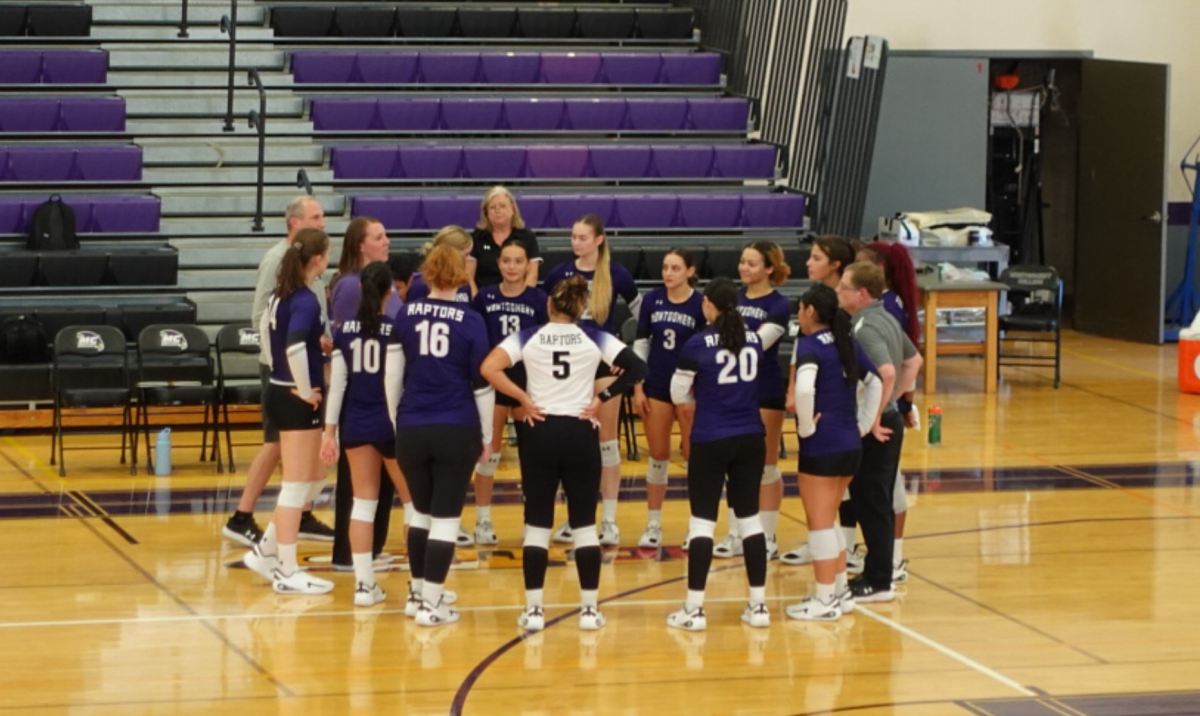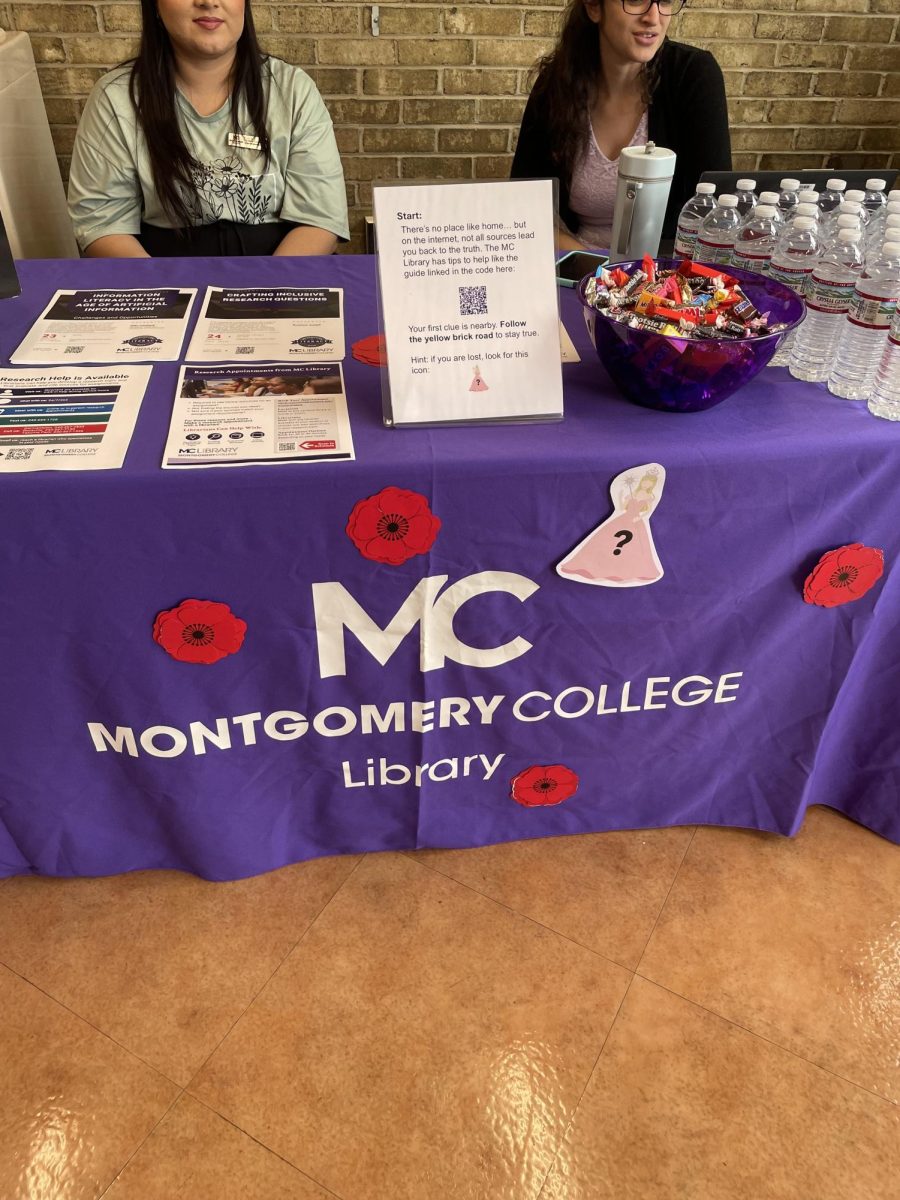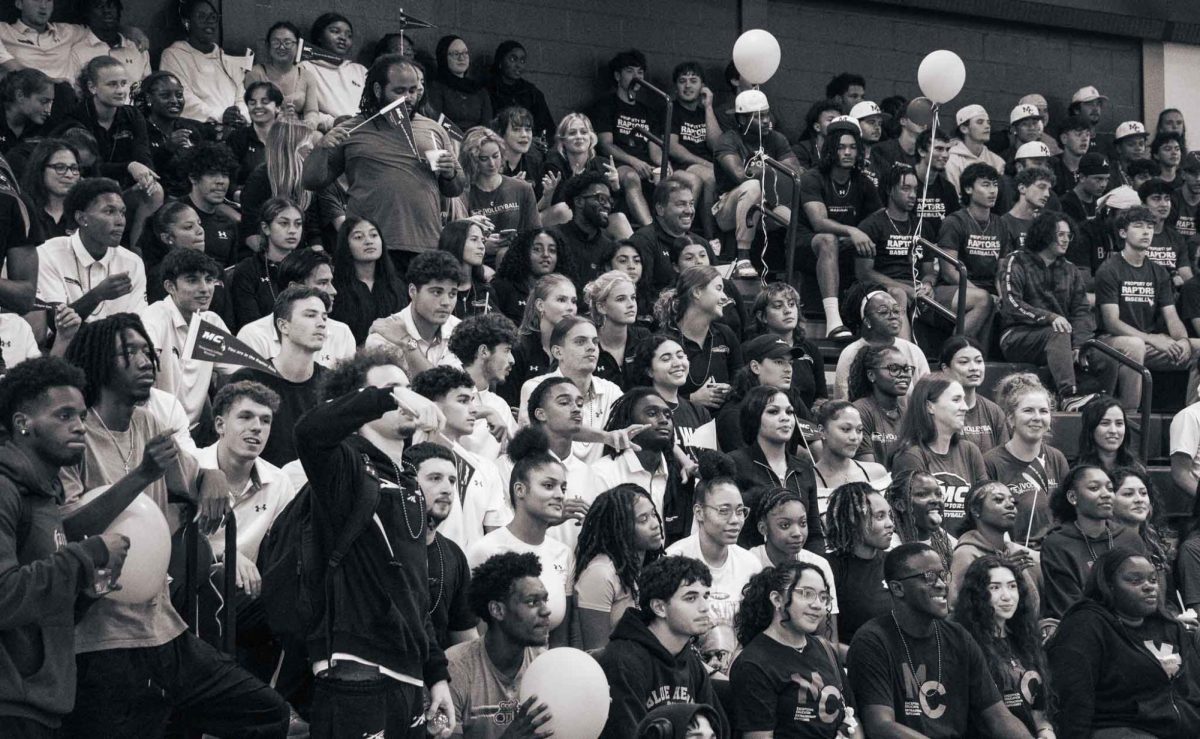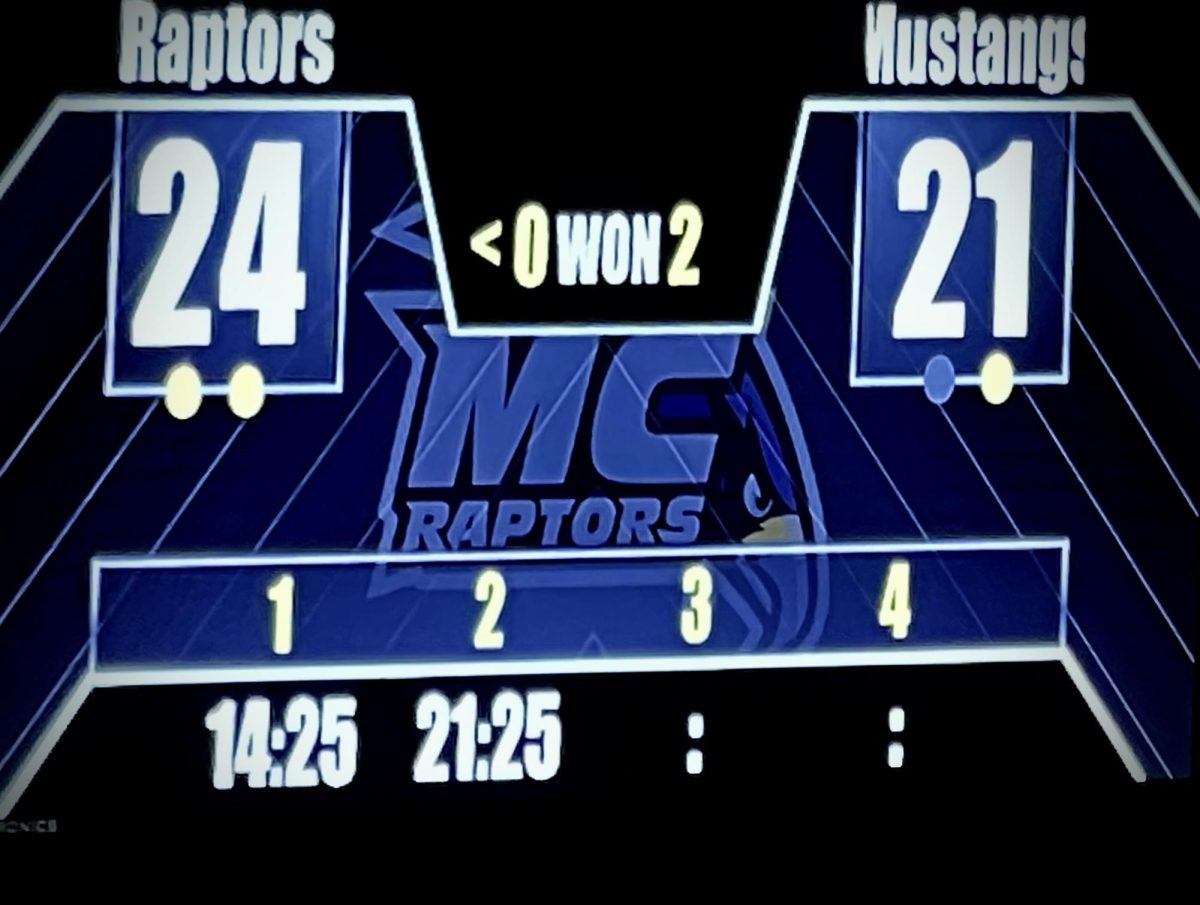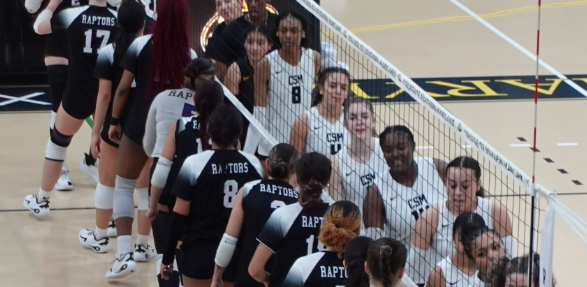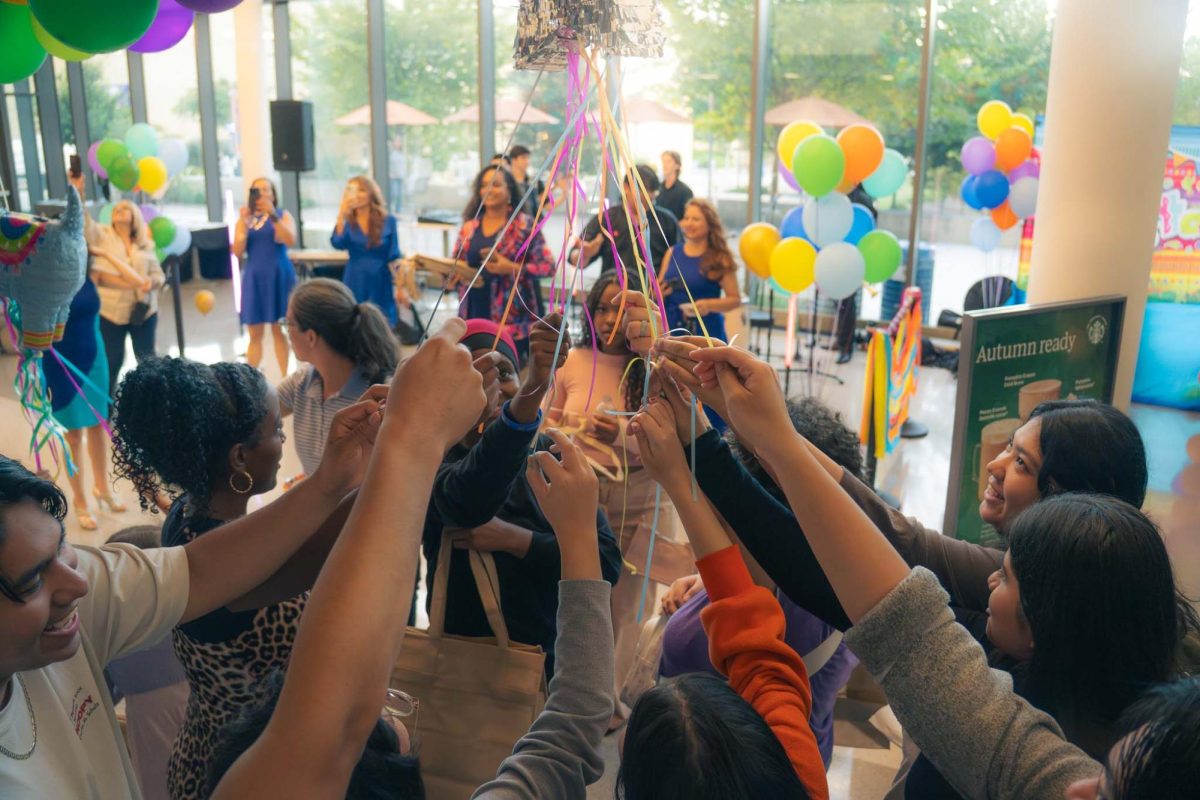The Takoma Park/Silver Spring campus on September 26th held an AI panel called “Surviving the Perfect Storm of Deep Fakes, AI, and Fake News: Information Literacy for Politics and American Government.” Head Librarian Vickie Drake of the Health Sciences, Communications, and Special Programs- Rockville Campus. Helping her was Karl Smith a faculty member in the Montgomery College’s Department of Humanities – Takoma Park/Silver Spring Campus. The lecture was about how to tell the difference between real, genuine information and misinformation made by AI. This skill is key during election season.
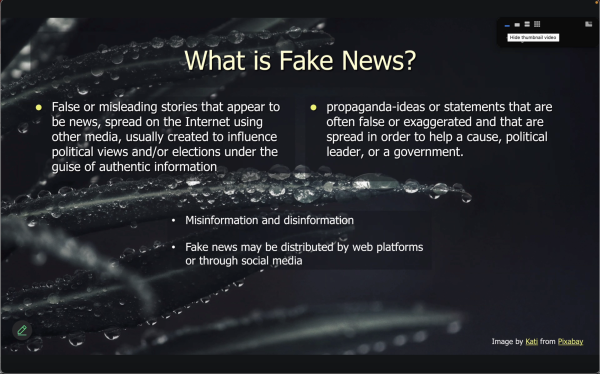
The presentation started with Vickie Drake presenting the ground rules for a respectful presentation, stating that it was meant to be non-partisan. Then Professor Karl Smith proceeded to take over by defining two keywords, fake news and propaganda. Both words were defined as: “fake news is false or misleading stories that appear to be news” and “propaganda is ideas or statements that are false or exaggerated.”
He then presented his four students with the names of Ian Schneiggians, Elana Brown, Tully Brown, and Taylor MacFarland. They took the “Cambridge Misinformation Test” by the University of Cambridge to determine, how susceptible Americans are to misinformation, and their ability to gauge between what is real and what is fiction. The test was created using The Pew Research Center and Reuters an international agency, with ChatGPT version 2.0 to create seemingly real, yet false headlines. Over, 8,000 participants over two years have filled out the questionnaire.
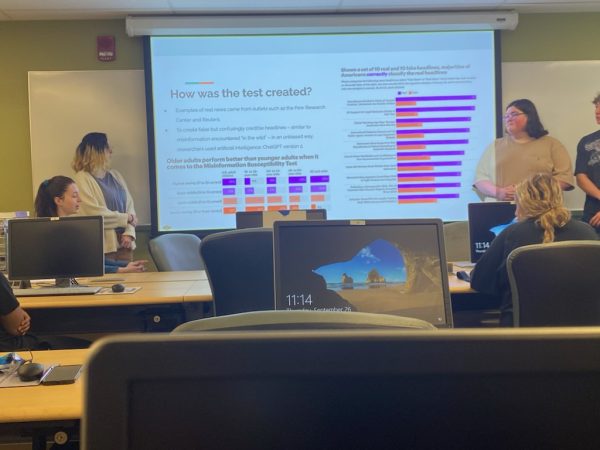
This is how each of the students scored on the test. Robinson scored a perfect score of 20/20, Brown scored 19/20, a bit more on the trusting side and Macfarland scored 17/20, a bit more skeptical. Schiffegens scored 17/20, a bit more naive. The scores indicated if someone was more likely to believe or doubt news that AI made.
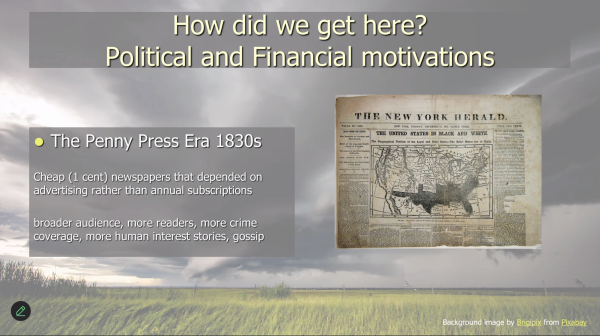
After this, Karl Smith presents why fake news is dangerous to democracy. He quotes Kenneth Janda, Jeffrey M. Berry, and Jerry Goldman authors of “The Challenge of Democracy: American Government in Global Politics”—and Voltaire a French writer and philosopher. Janda, Berry, and Goldman wrote “In democratic governments, information must flow freely in both directions; a democratic government can respond to public opinion only if its citizens can make their opinion known. Moreover, the electorate can hold government officials accountable for their actions only if voters know what the government has done, is doing, and plans to do.” Additionally, Voltaire said, “Those who can make you believe absurdities can make you commit atrocities.”
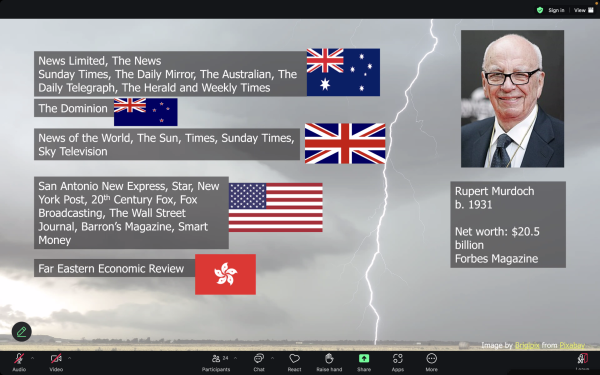
Professor Karl Smith transitioned to tell the history of newspapers dating back to the 1830s when newspapers were printed and sold for one cent. He then talked about Rupert Murdoch, an owner of multiple newspapers, and one of the top 100 wealthiest people in the world. He used him as an example of the infestation. “The bottom line is the profit margin, and I would argue it’s profit first and ideology second.” The next slide exhibits misconceptions spread by certain people and disingenuous news outlets. Professor Smith then gave strategies on how to not fall for misinformation.
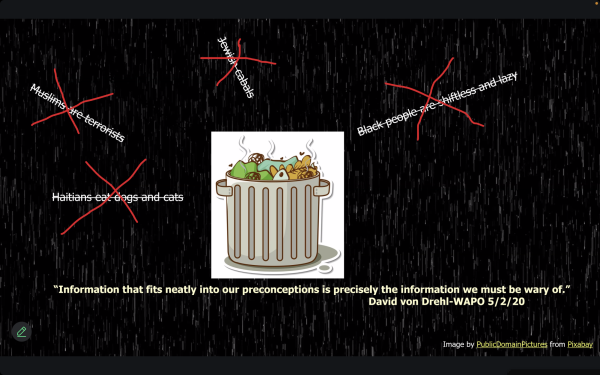
Then, Vickie Drake steps back into the picture to offer diverse services the MC library can contribute to fact-checking and discovering trustworthy news sources.
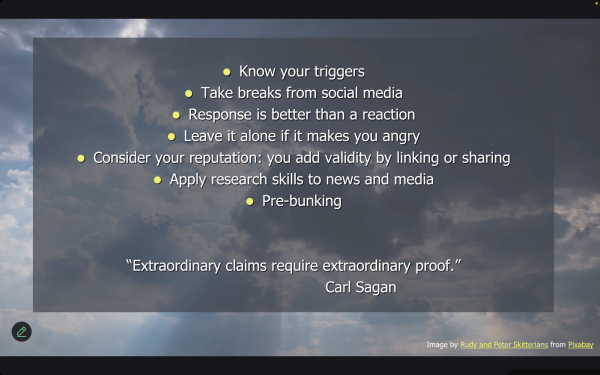
Both presenters then ended with the final questionnaire to answer any questions from the audience. When asked about the main takeaway they want people to get from the presentation, Professor Smith responded, “I am hoping that the level of awareness has been increased. If your level of fake news was a 3, hopefully by the end of this presentation you’re up to a 4 or a 5.”



